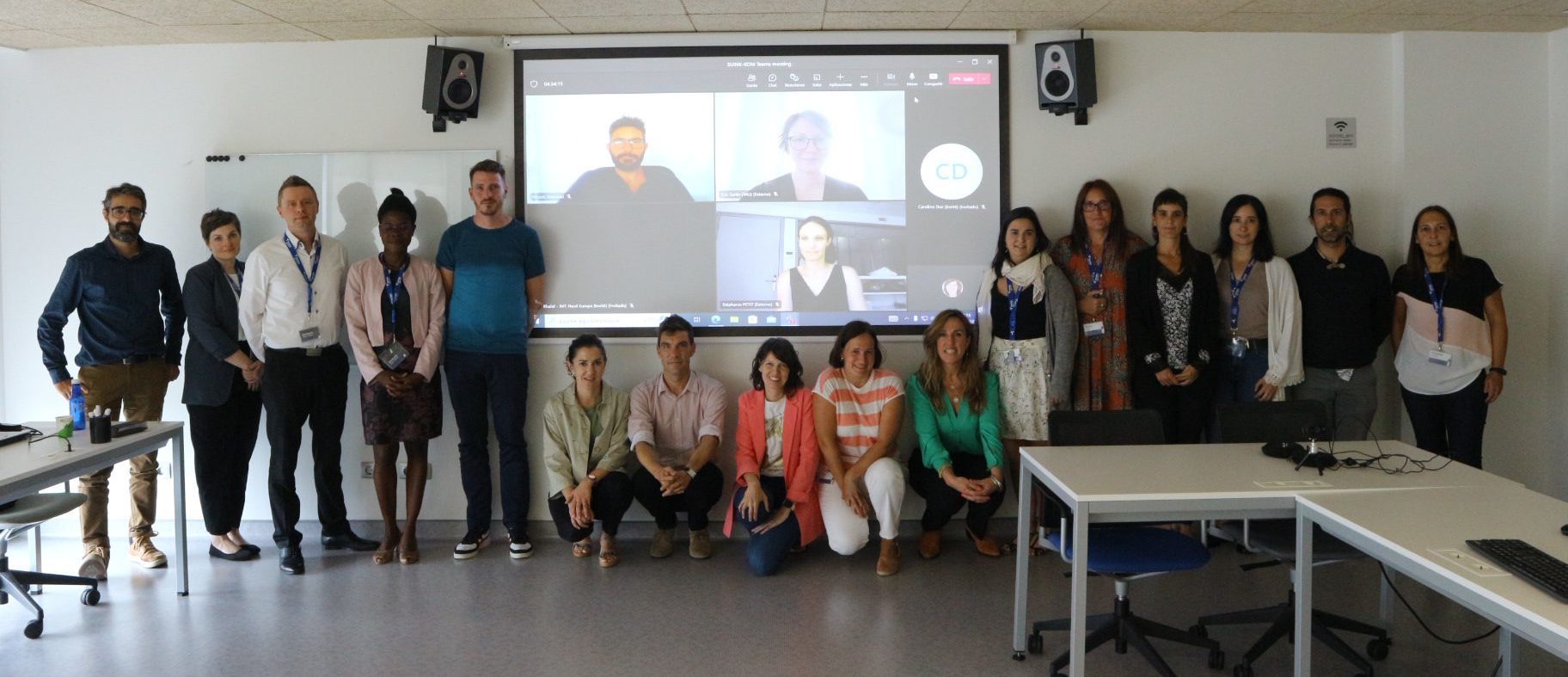The SUINK project aims to develop innovative green solutions to supply power to a wide range of sensors for the automotive sector.

Tekniker and Greenovate! Europe are glad to announce the launch of a new European project on functional electronics: the SUINK project (SUstainable self-charging power systems developed by INKjet printing).
The main objective of SUINK is to design and implement sustainable, flexible, and printable self-charging power systems able to supply power to a wide range of sensors.
Today a modern car is equipped with over 60 sensors to monitor essential aspects such as temperature, oil pressure, emission levels, speed, etc. This number is only expected to increase as self-driving and electric vehicles become more popular. However, these kinds of sensors need to be connected to a power source using cables and connectors, which add undesired weight, and lower the overall reliability of the vehicle.
The digital transformation presents enormous growth potential for EU companies and society. The need for a better energy efficiency and industrial productivity has been the main driver to develop embedded electronics solutions, which help to reduce the weight and volume of smart products.
The next generation of functional electronics must incorporate new sustainable design, manufacturing, use and end-of-life techniques that are scalable, safer, cheaper, cleaner and less energy consuming. The Sustainable Development Goals (SDGs) and their associated performance indicators, which take into account the three dimensions of sustainable development (economic, social and environmental), must be the key drivers of this new generation of functional electronics.
The innovative power systems to be developed by the SUINK project will address this challenge by relying on sustainable elements, including a piezoelectric energy generator, to harvest electrical energy from mechanical vibrations, and a rectifying system as a connection circuit with a supercapacitor as an energy storage component.
The overall solution will be based on the combination of biobased conductive, dielectric, and piezoelectric inks that will be applied by inkjet printing on biobased flexible surfaces.
This innovative technology will be applied to produce temperature, humidity, and strain sensors for the automotive sector, exploiting vibrations from the moving vehicle as a source of energy. Further applications will include the development of a new recyclable energy-harvesting textile material to be used in vehicles’ interiors.
By reducing the weight of components, the SUINK project will contribute to increase the productivity and energy efficiency of the automotive industry, following a fully circular economy approach: from design to the end-of-life of products, implementing new recyclability and reusability protocols.
“SUINK will help boost European leadership in flexible, printed and organic electronics while contributing to the UN Sustainable Development Goals (SDGs). Enabling circular economy and sustainability, the SUINK project will contribute to both the environment and European businesses!”
Estibaliz Gómez, SUINK Coordinator from Tekniker
Funded by Horizon Europe for a duration of four years, SUINK kicked off on September 15th, 2022, in Eibar (Spain). Co-ordinated by Tekniker, it brings together 11 partners from 5 countries across Europe:
- Spain: Tekniker, Universidad del País Vasco, Oribay.
- Belgium: Centexbel, Greenovate! Europe.
- France: Dowel Innovation, Institut Mines-Télécom.
- Finland: Kaira Clan, Tampere University.
- Italy: Gemmate Technologies, Centro Researcher Fiat.
The SUINK website (www.suink.eu) will be available soon. In the meantime, please follow us on Twitter and LinkedIn.
Contact
Project coordinator
Ms. Estibaliz Gómez, Tekniker
email: estibaliz.gomez@tekniker.es
Press and media inquiries
Ms. Elisa Casazza, Greenovate! Europe
email: e.casazza@greenovate-europe.eu
